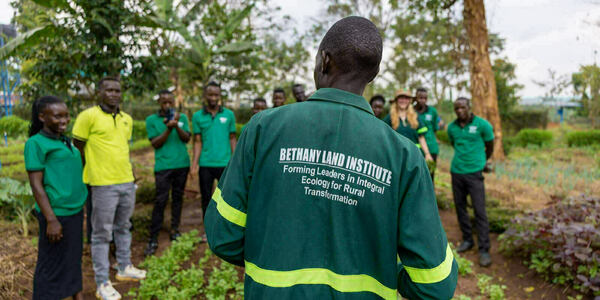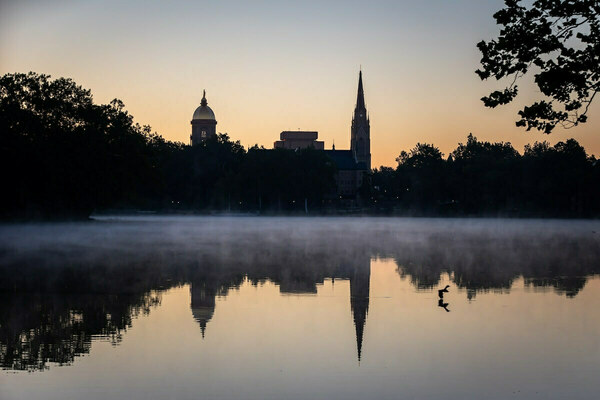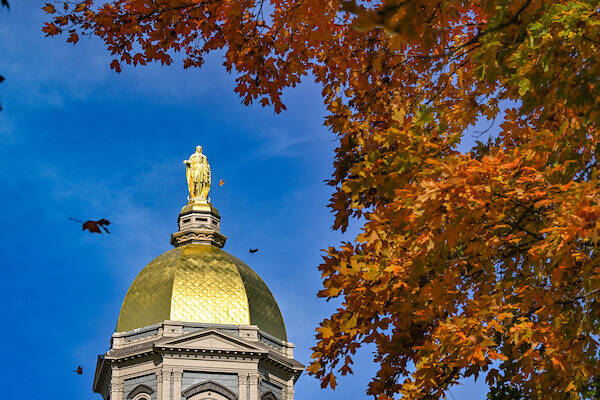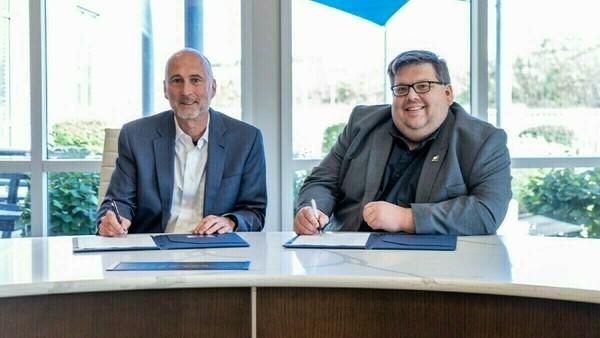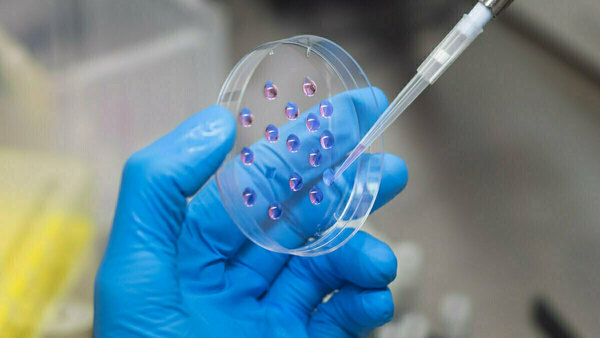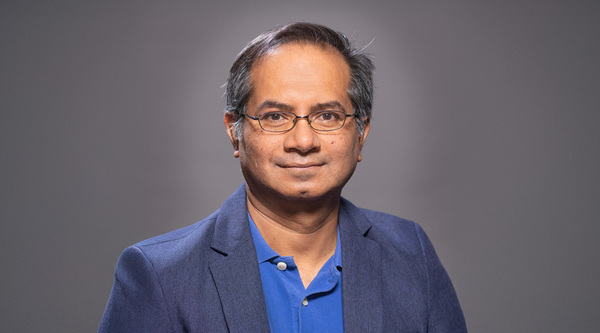NSF Center for Computer-Assisted Synthesis at Notre Dame names Phase II Center for Chemical Innovation
Imagine a world where the power of chemistry is used in concert with machine learning to solve problems in healthcare, materials science, or energy research. Machine learning can accelerate the synthesis of molecules that hold the key to solving these problems by developing new and more efficient ways of making them.
The Center for Computer-Assisted Synthesis (C-CAS)—recently named one of only seven Phase II National Science Foundation Centers for Chemical Innovation (CCI) in the nation, and the first one in Indiana—will change the way chemists solve these problems and many more, both quickly and effectively. To do so, the National Science Foundation awarded C-CAS $20 million over five years.
“C-CAS is building a future where a chemist designs a new molecule and uses AI to work out how to best make that molecule,” noted Sean L. Jones, Assistant Director for the Mathematical and Physical Sciences Directorate at the NSF. “This will allow industries, including pharmaceuticals, biotechnology, fine chemicals, electronics and more to make molecules more sustainably and affordably. This is a grand research challenge with huge societal impact.”
C-CAS helps chemists focus on which molecules should be made, rather than on how to make them. By reducing the time and resources needed to design and optimize synthetic routes, the tools and protocols developed in C-CAS provide data-driven approaches to make synthetic chemistry more predictable and efficient because less time is spent on trial-and-error approaches. The tools developed by C-CAS are then shared with the research community through open-source clearinghouses.
C-CAS will also contribute to making the US a leader in science and technology through attracting, educating and training a new generation of “data chemists” that includes novel opportunities for researchers from underrepresented groups.
C-CAS is a nexus of collaboration, innovation, and education, whose impact is amplified by an extensive network of academic researchers, companies, non-profits, and other research centers. This provides C-CAS with a unique opportunity to help shape the future of synthetic chemistry and the fields that rely on it such as medicine, materials, and energy.
The CCI Program is a highly competitive, two-phase program. Phase I CCIs receive resources to develop the science, management and broader impact components of a major research center dedicated to a transformative idea before requesting Phase II funding.
“With its collaborative network of data scientists, computer scientists and synthetic and computational chemists, C-CAS is poised to introduce potentially paradigm-shifting approaches.” said David Berkowitz, the Director of the NSF Division of Chemistry. “This Center for Chemical Innovation promises to add an important data-driven dimension to synthesis to complement the intuition of the synthetic chemist, while building on the principles of mechanistic understanding, atom economy, symmetry and convergency.”
C-CAS is led by Olaf Wiest, Professor in the Department of Chemistry and Biochemistry at Notre Dame and brings together the expertise of data scientists, computational and synthetic chemists to change the field of synthetic chemistry from an intuition-driven to a data-driven science. Collaborators at Notre Dame include principal investigators Nitesh Chawla, the Frank M. Freimann Professor of Computer Science and Engineering, and Xiangliang Zhang, Associate Professor of Computer Science and Engineering.
"Over the last 15 years, chemists have learned to generate much bigger datasets using computation and high throughput experimentation, but are often not equipped to take full advantage of them,” said Wiest. “C-CAS will develop and share the concepts, datasets and tools to transform the practice of synthesis by maximizing the value of a quantitative approach to data analysis."
External faculty affiliates include Connor Coley at MIT, Abby Doyle and Wei Wang at UCLA, Gabriel Gomes and Olexandr Isayev at Carnegie Mellon University, Hosea Nelson and Sarah Reisman at CalTech, Rob Paton at Colorado State University, Richmond Sarpong and Dean Toste at UC-Berkeley, and Matthew Sigman at the University of Utah.
An important part of C-CAS is the Data Chemists Network, a group of faculty with distinguished expertise ranging from synthetic chemistry to science communication at institutions that typically do not participate in large research centers. The perspectives and skills of Raychelle Burks at American University, Andre Isaacs at College of the Holy Cross, Nicholas Ball at Pomona College, Jessica Kisunzu at Colorado College, and Ampofo Darko at University of Tennessee therefore greatly enhance the reach and capabilities of C-CAS.
C-CAS is funded by NSF through CHE-2202693. For additional information on C-CAS, visit ccas.nd.edu
Originally published by at science.nd.edu on August 11, 2022.
Latest Research
- What does it look like to live ‘Laudato Si’’? You can see it in rural UgandaWhen Emmanuel Katongole was growing up in rural Uganda, his family’s life centered on a 3-acre plot of land where they grew coffee, beans, maize, bananas and other food crops. A nearby spring, accessible by a short…
- Karen Deak named Executive Director of Notre Dame’s IDEA CenterKaren Imgrund Deak, pictured above, has been named executive director of the IDEA Center at the University of Notre Dame. Karen…
- Hope, Legacy, and the Fight Against Brain Cancer: The Story Behind the Hahn-Pflueger Brain Cancer Scholar Program“The most powerful thing in this world is hope,” said Rex Pflueger,…
- Notre Dame, Beacon Health System announce new, multiyear research collaborationThe University of Notre Dame and Beacon Health System have announced a new, multiyear research collaboration. Through this agreement, Notre Dame and Beacon will jointly develop collaborative, health-focused research projects that are of interest to both organizations, particularly in the areas of oncology and health data.
- Fighting to cure brain cancerTo better understand glioblastoma, an aggressive brain cancer, a Notre Dame researcher thought outside the box—and off planet Earth. Read the story
- ND electrical engineer Ranjan Singh named founding editor-in-chief of APL Engineering PhysicsRanjan Singh, professor of electrical engineering at the University of Notre Dame and pioneer in terahertz photonics, spintronics and metamaterials, has been named founding editor-in-chief of Applied Physics Letters (APL) Engineering Physics.








